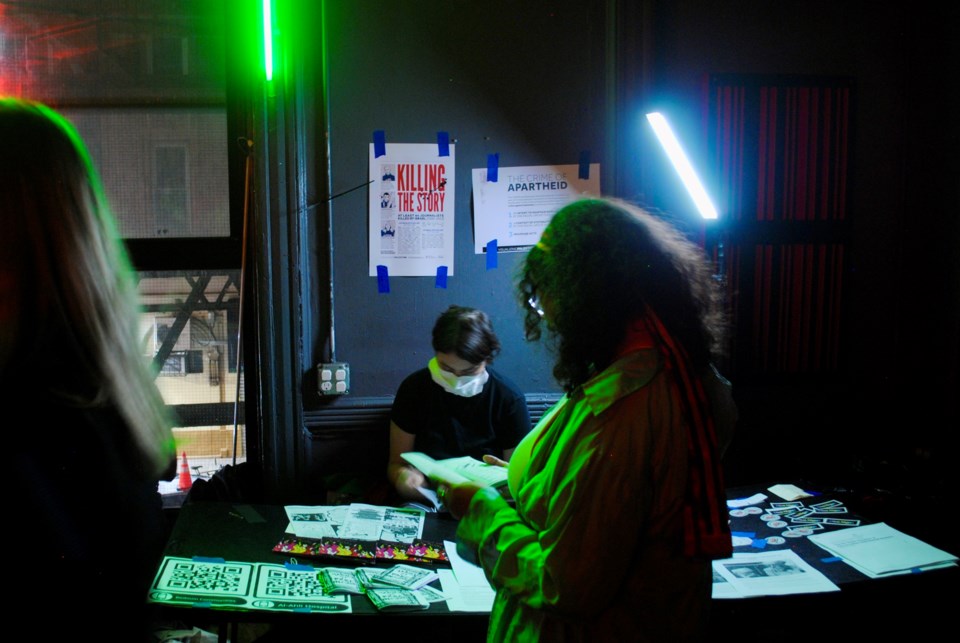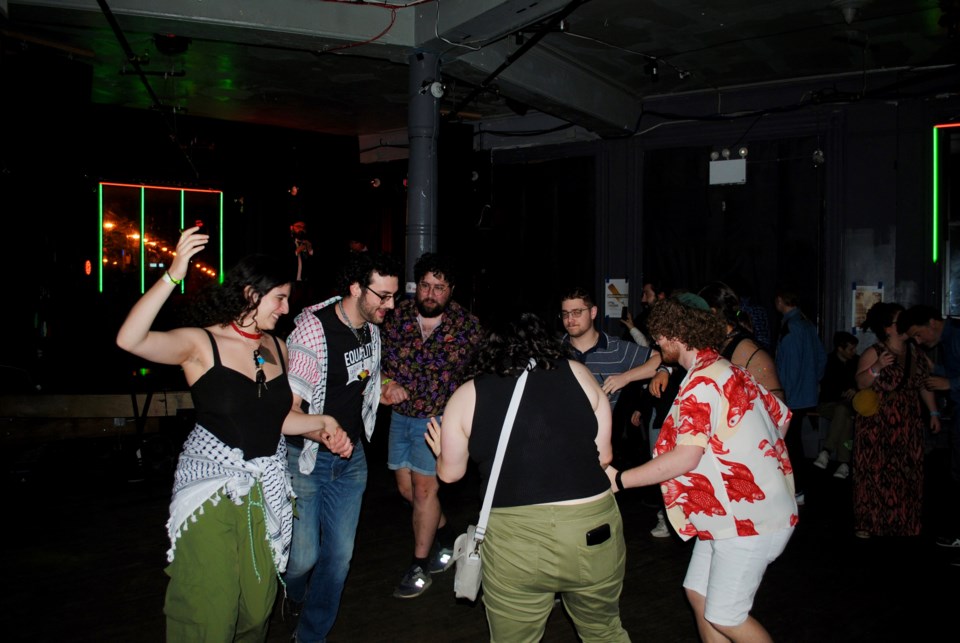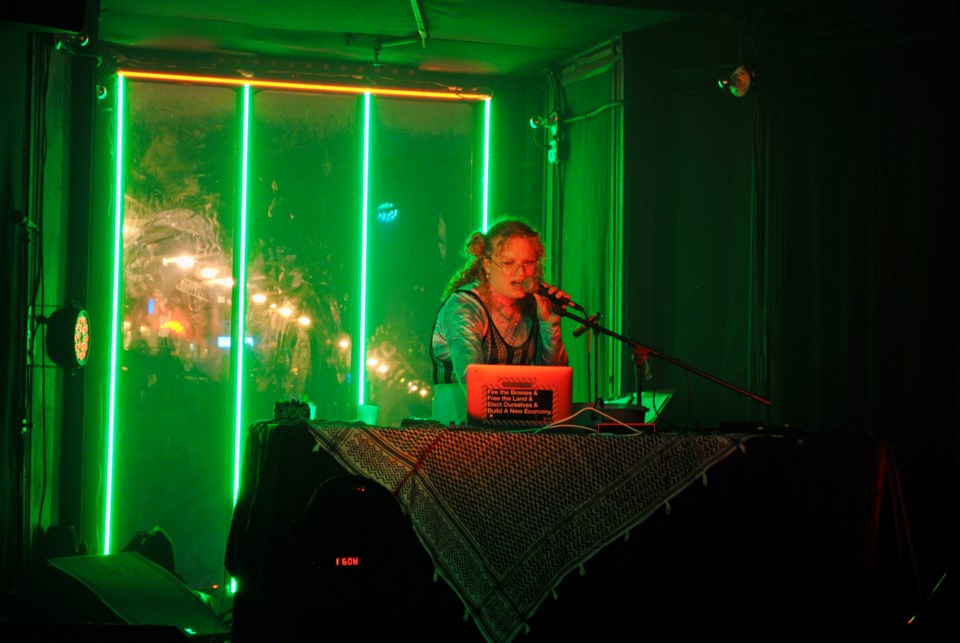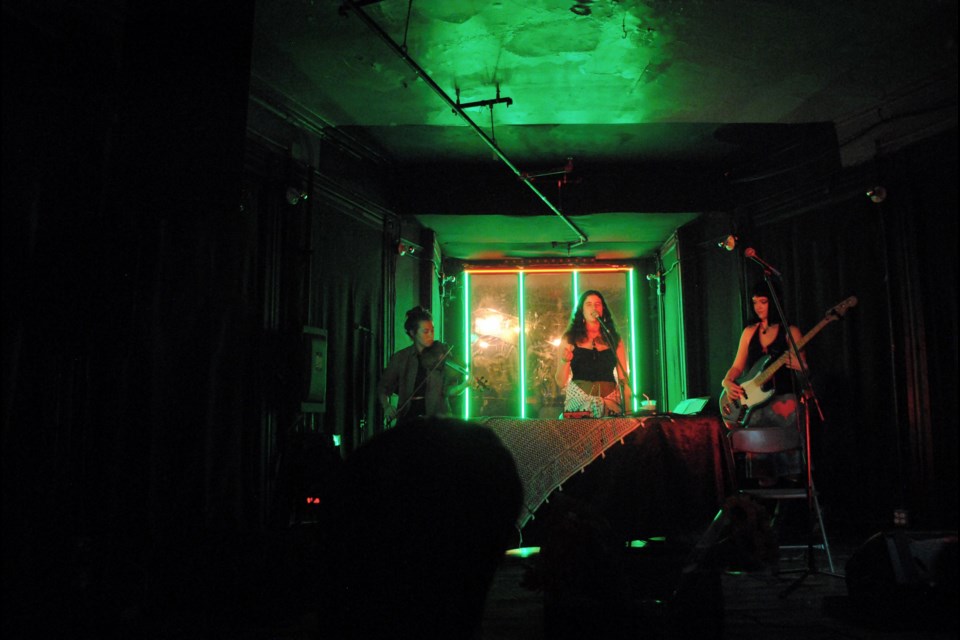On Oct. 26, Chaia Berman Peters, founder of Kleztronica, was faced with an impossible task: To address the latest ongoing Israel-Hamas war while also preparing the audience for a night of joyous Jewish rave music at the Market Hotel in Bushwick.
She did this by setting intentions for the night in front of the crowd.
"We're all in need of a lot of protection right now, and this is supposed to be a protective space and a healing space," Berman Peters said when she took the stage. "And I want you all to look around and to see all these people who are here for you to help you with what you need tonight."
She gestured to the corners of the ballroom, where zines and pamphlets were being distributed to educate participants on different perspectives on current events in Gaza and Israel.

Kleztronica is a collective and rave series that "uplifts Jewish music through the use of electronic music, both artistically and culturally," Berman Peters said. The collective, which was founded in December 2022, blends rave music with klezmer, a musical tradition hailing from Ashkenazi Jews in Eastern Europe.
"The klezmer community is this group of people that was started in the '60s and '70s — basically, these hippies who were looking for their cultural roots," she said. "A lot of people who were on the margins of Jewish culture said, 'We want to get in touch with what Jewish culture means to us, the music that our ancestors played.'"
Berman Peters first entered into this scene by virtue of klezmer performers who surrounded her father, a professor of Jewish mysticism at Brown University. She went on to study music at the New England Conservatory, where she played in a klezmer band. At the age of 22, she created Kleztronica to be a space where Jews of any denomination looking for a radical LGBTQ+ community can gather.
Today, the Kleztronica collective is made up of more than a dozen performers. A typical Kleztronica evening features more traditional klezmer performers, like Michael Winograd's clarinet act, and also more experimental acts, like Hadar Ahuvia, a performer who deconstructs Ashkenazi dance traditions.

Emcee Kopl Hirsch, a comedian and punk band performer, took the mic after Berman Peters to address the uneasiness of celebrating Jewish culture amidst genocide.
"Tonight we are at a dance floor, and last week I was at a lot of protests, as a lot of people here were as well," Hirsch said. "A protest is not necessarily the best space for working out complicated feelings because a protest requires … a certain clear-headedness and a sense of clarity and unifying purpose. A dance floor, on the other hand, no matter what, the square footage has more than enough space for all of our feelings and all of our thoughts and our troubles and our dreams and our nightmares. And that is also such an important part of our radical lineage."
Hirsch added that the Market Hotel and this Kleztronica performance would become a "radical, diasporic homeland for the night."

DJ Allium, one of the Kleztronica DJs, uses prayer in their music. They started their set with a hypnotic rendition of a Jewish prayer, rendered with voice distortion and a drum machine. At one point, Allium was also banging on a pot. Many audience members hummed along as best they could. Allium closed their set with a distorted version of the mourner’s kaddish for people carrying grief.
"Genocide is happening in many of our names," DJ Allium told the crowd. "I want to use this to bless the freedom fighters in Palestine."
One attendee, Daniel Konecky, has been coming to Kleztronica events since March.
“I like the openness of everyone who comes to these events,” he said. “I like the tolerance of everyone here. I always feel like I'm welcomed.”
Kleztronica's next mini-event is on Nov. 16, and the next full event will be on Dec. 28.







